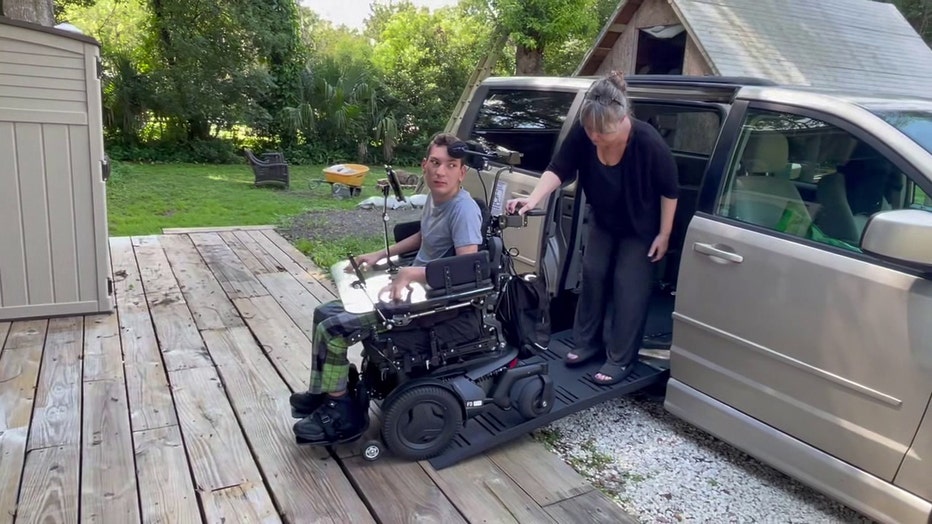Florida family urging lawmakers to provide more funding to program focused on helping those with disabilities
TAMPA, Fla. - A Florida family is traveling the state, urging lawmakers to provide more funding to a program that could help tens of thousands of people with disabilities.
The Medicaid iBudget Florida Waiver program exists to help families whose loved ones have disabilities can find and fund in-home services, so people can live independent and healthy lives.
But there are currently about 22,000 people on the waiting list, making it the longest in the country, according to healthyfla.org.
J.J. Holmes, 19, has been on Florida's Medicaid waiver wait list for about 17 years and stopped at the Hillsborough legislative delegation's meeting last week to urge lawmakers to prioritize funding the program.
"Nowadays, Florida has forgotten about us," J.J. told the delegation.
J.J., who was diagnosed at birth with cerebral palsy and lives in Longwood, uses his nose to type and speaks through a computer. His mother, Alison Holmes, 60, will always have to take of her son.
Both talked with FOX 13 about how desperate families, like theirs, are to get off the waiver list and receive the funding they need.
"When I die, there's no way he can live in the community by himself," Alison said. "It would let us get these services in place, so we would know that if something happens to us, he's not going to be forced into an institution."

"I would say to lawmakers, please fund the wait list. People with disabilities deserve to be able to live in their communities with dignity," added J.J., who is attending Seminole State College and plans to major in political science. "You should care, even if you're not disabled because disability can happen to anyone at any moment."
Advocates with Disability Rights Florida hope lawmakers listen to the Holmes family.
Caitlyn Clibbon, the director of community and health care services for the organization, said without financial help, many families fall into crushing debt before they're able to receive federal assistance.
"They would have to run through every bit of savings and assets they had to qualify for Medicaid in order to pay for that health care. Being on the budget waiver allows families to retain their assets," Clibbon said, adding she can think of one reason funding is at its current level. "I think the only answer is that it's a matter of priorities."
READ: Black bear spotted at Disney World's Magic Kingdom captured, FWC says
Clibbon said there are other complicating factors, including the need for private and public entities to offer higher paying jobs to workers providing services to people with disabilities.
"There also needs to be an investment in beefing up that workforce to make sure that there are providers there and that there are enough providers for people to choose," she said. "That's a big part of the waiver program, is that it has to be person centered and self-directed. So we need a network of providers so that people can choose the person that best fits their needs."
J.J. and Alison, meanwhile, plan to continue taking their message to lawmakers in advance of the January legislative session, with the Polk legislative delegation coming up on soon.
"I hope that they'll that they'll care enough to fund it. But that's not happened yet," said Alison.


